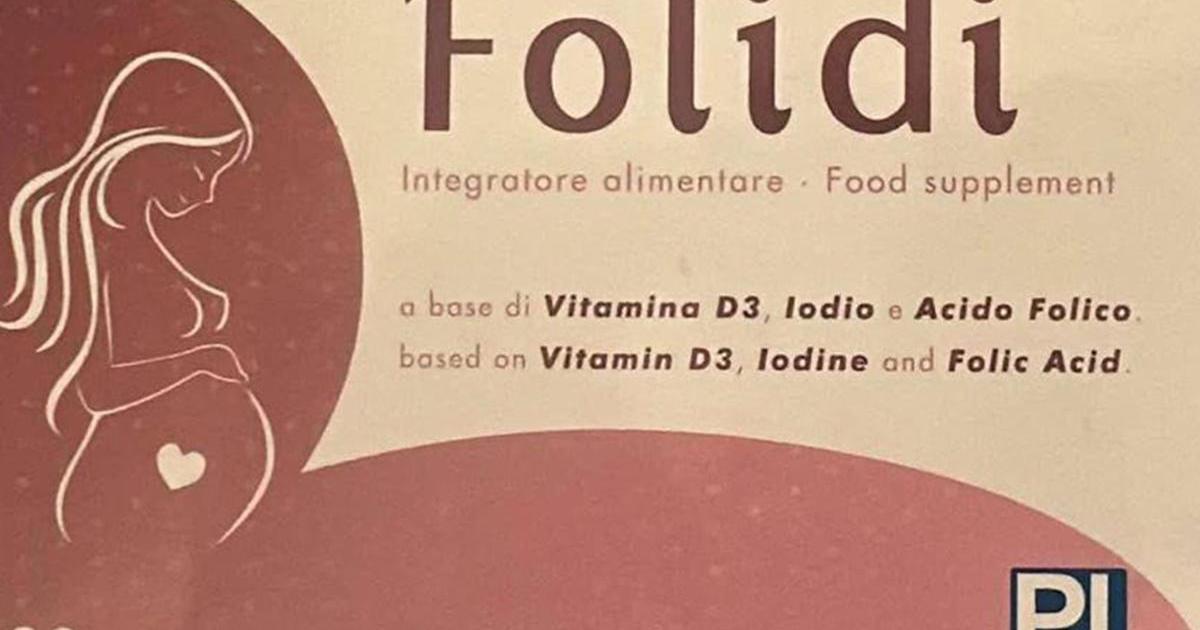A supplier error led to dangerously high levels of Vitamin D in Folidi, a supplement now urgently recalled after hospitalising ten women in Malta, five of whom are pregnant, according to its manufacturer.
The Health Ministry said not all pregnant patients who ingested the supplement required hospital care.
A ministry spokesperson said they will be keeping a close eye on pregnant women affected, both during and after pregnancy.
He added that the ministry is gathering information and seeking legal advice to ensure all necessary action is taken in accordance with regulatory and legal requirements.
On Wednesday, Times of Malta reported that a group of women affected by Folidi are also considering legal action.
Folidi – which contains Vitamin D3, iodine and folic acid – was urgently recalled on Monday due to “potentially dangerous” amounts of Vitamin D. Excessive Vitamin D can increase calcium absorption from the intestines, leading to hypercalcaemia – elevated levels of calcium in the blood – which can cause kidney problems. As Folidi is classified as a food supplement and not a medicinal product, it does not require a prescription.
The recall followed an urgent communication from the manufacturer, Gruppo Farmaimpresa. The local distributor is Focused Pharma.
Distributor blames supplier error
When contacted, a spokesperson for Gruppo Farmaimpresa said the problem was limited to one batch of the supplement.
“The second produced batch is still in the warehouse and it never reached the Maltese market. Currently there are no plans to re-introduce the product in the market,” the spokesperson said adding that the issue only impacted Malta as “we distribute the product in Malta only”. Folidi has been on the Maltese market since November 2024.
Asked what caused the excessive levels of Vitamin D, the spokesperson said: “It was an extraordinary event and we are performing all the necessary checks to understand what happened. The problem seems to be due to an error of one of our suppliers. We would like to inform you that no other products coming from this supplier have been placed on the market of Malta.”
The spokesperson said the company involved the Italian health authorities in managing the event and identifying responsibilities.
“For our part, as soon as we understood what was happening, we immediately blocked the product and then we started the recall from the market by coordinating with the Maltese health authorities. This event has shocked us and we have put ourselves at the disposal of both the Maltese and Italian authorities for all the activities they consider necessary.”
Might have to delay IVF by a year
One woman preparing to undergo IVF said she may need to delay treatment for up to a year to allow her body to recover. She began taking Folidi in March on her gynaecologist’s advice as part of her pregnancy planning.
After two weeks, she began experiencing nausea, which she initially dismissed as exhaustion. However, as her condition worsened, blood tests revealed that her calcium levels were nearly double the normal limit. She was hospitalised and treated with IV fluids to flush out the excess calcium.
Further tests revealed dangerously high levels of Vitamin D, which caused the imbalance, and she was subsequently prescribed steroids, which she is still taking.
The health ministry spokesperson explained that high calcium levels can cause a range of symptoms including constipation, increased thirst, frequent urination, confusion, heart problems and kidney damage, including kidney stones.
The second produced batch is still in the warehouse and it never reached the Maltese market. Currently there are no plans to re-introduce the product in the market- spokesperson for manufacturer Gruppo Farmaimpresa
Further complications may involve kidney injury, which appears to respond to intravenous hydration. Current treatment focuses on lowering calcium levels using IV fluids, and, in some cases, steroids have also proven effective. Affected patients are undergoing regular blood tests until their Vitamin D levels return to normal.
Medical sources added that tests are being conducted to confirm whether the other ingredients – iodine and folic acid – are within the indicated amounts.
Consumers are advised to stop taking Folidi immediately and not to replace it with another Vitamin D supplement. Any remaining product should be returned to the pharmacy where it was purchased.
For assistance, the Malta National Poisons Centre can be contacted on 1774, Monday to Friday from 8am to 8pm.
